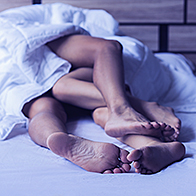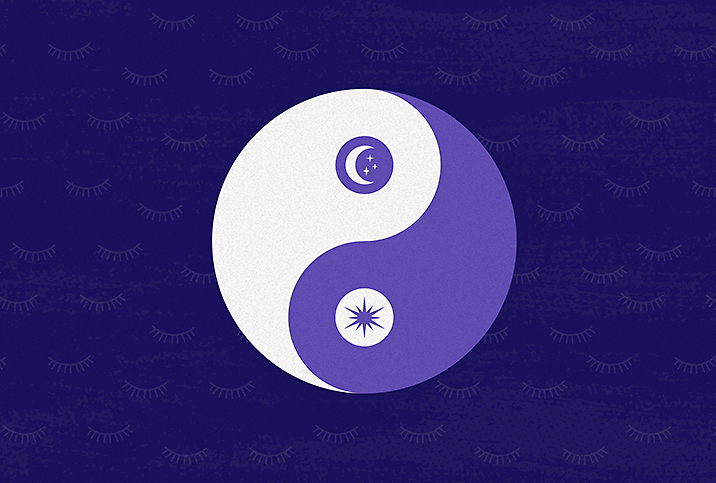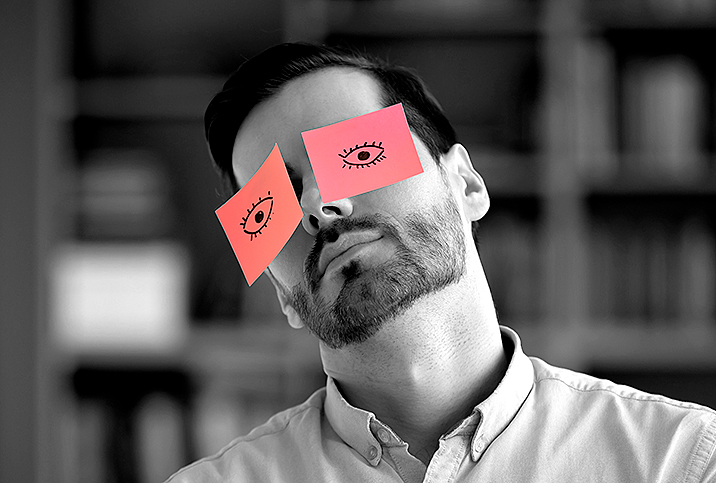Sleep Troubles? Try Something Natural Instead

Sleepwalking, sleep-driving, confusion, memory issues, blacking out, gastrointestinal problems, muscle weakness, dizziness, headache, fatigue, grogginess and developing a possible chemical dependence.
Yes, these symptoms sound a lot like a horrific hangover on steroids. Except they're all symptoms that can be caused by sleep aids.
In the United States, it's estimated 1 in 7 people experience long-term insomnia. The older you are, the more likely you are to have a problem sleeping. While about one-third of adults rely on sleep aids every night, these medications are only intended for short-term consumption. For the estimated 80 percent who experience a sleep aid hangover and want to avoid chemical dependence, a natural holistic approach may prove fruitful.
While about one-third of adults rely on sleep aids every night, these medications are only intended for short-term consumption.
Gloria Y. Mensah, LCPC, NCC, noted there are various types of sleep problems, such as "falling asleep, staying asleep, early awakening and sleeping a lot." She added that patients who seek her help for mood disorders often struggle with sleep problems.
Thanusha Sambamurthy, BAMS, DFN, a second-generation Ayurvedic physician and certified nutritionist in Punjab, India, specializing in PCOS and Manasika Chikitsa (mental health and its treatment), also sees patients whose sleep problems are compounded with other conditions. She believes the state of the world in recent months (and years) has worsened many people's sleep quality.
Breathe in, breathe out, sleep well
Meditation can help a person relax their body, mind and spirit, thus aiding sleep issues. However, for those new to meditation, the quest toward inner peace can seem uncertain or unattainable. Mensah detailed advice on how patients can begin a meditation habit.
"Meditation can be very effective when utilized as a daily practice," Mensah explained. "Often, my clients say that it is difficult for them to focus while meditating. I offer a practical way to meditate: First, find a quiet space and sit. Find an object, like a plant, and focus on the plant, and take as much time as you need, and take in the leaves, the stems, the color(s), the length, just focus on the attributes of the plant. This sometimes helps to calm the mind and body."
Mensah continued, "The next practice is deep breathing. Sit up straight. Feet planted on the ground. Eyes closed or open (choose one). Hands on your lap, palms up. Inhale for four counts, hold your breath for four counts, exhale for four counts. I recommend the exhale to be audible through the mouth so you may hear the changes in your breath—the less ragged, the more you can tell you are relaxing. Repeat three times or as needed to release stress and tension in the body."
In addition to mindful meditation, Mensah suggests other natural remedies.
"For my clients with sleep problems, I often recommend or suggest practical things, such as committing yourself to a sleep schedule, using white noise or sounds of the ocean waves crashing as background noise, essential oils such as lavender scent sprayed over pillows, inhaled lightly (several times) or rubbed between your palms," Mensah added. "Try a hot bath or shower, and make sure the room temperature is not too warm. Also, we work to uncover and address the issues causing the sleep problem with talk therapy."
The Ayurvedic approach to a good night's rest
Ayurveda—which translates to the "science of life"—focuses on finding balance and treating the patient as a whole, as opposed to their individual ailments at a particular moment.
"Ayurveda treats all diseases by doing one thing first, [and] that is finding out the nidana—or causative factor—of the disease," Sambamurthy said. "Ayurveda has three pillars of health: ahara (healthy food), nidra (quality sleep) and brahmacharya (the right amount of sexual activity). Each person has a different healthy composition of doshas (primary life forces), which makes everyone different in the way they look, behave, sleep, dream and think, based on their dosha predominance."
Because every individual is unique, Sambamurthy works with patients to decide personalized Ayurvedic medicines, diet changes and yoga practices. Additionally, she advises simple, yet effective, daily practices, such as, "Abhayngam (oil massage), like massaging feet with warm castor oil before sleep, doing breathwork, eating a light and easy-to-digest early dinner, avoiding blue light before bedtime, avoiding caffeine and alcohol after 5 p.m., and following a routine."
'You alone are responsible for your healing. Take charge today, start healing yourself one step each day and one day at a time.'
Sambamurthy, who runs an international platform for Ayurvedic online consultations called Saffron Ayur Holistic Ayurveda, has a valuable message for those who are struggling.
"You are your own healer," she said. "I want you to sit in a quiet place and do a self-reflection, a self questionnaire on how you think, what you eat, your way of life, family history and note down your answers. Try to understand your causative factor and start your healing journey from there."
"No one knows your body and mind better than you," she continued. "You alone are responsible for your healing. Take charge today, start healing yourself one step each day and one day at a time. Doctors and coaches are there just to guide you through, but in the end, you are the only one who is taking charge."
If sleep problems are affecting your life in a significant way and your current approach is not giving you the rest you need, consider help from a licensed medical professional to determine the root causes and best possible solutions for you.




















